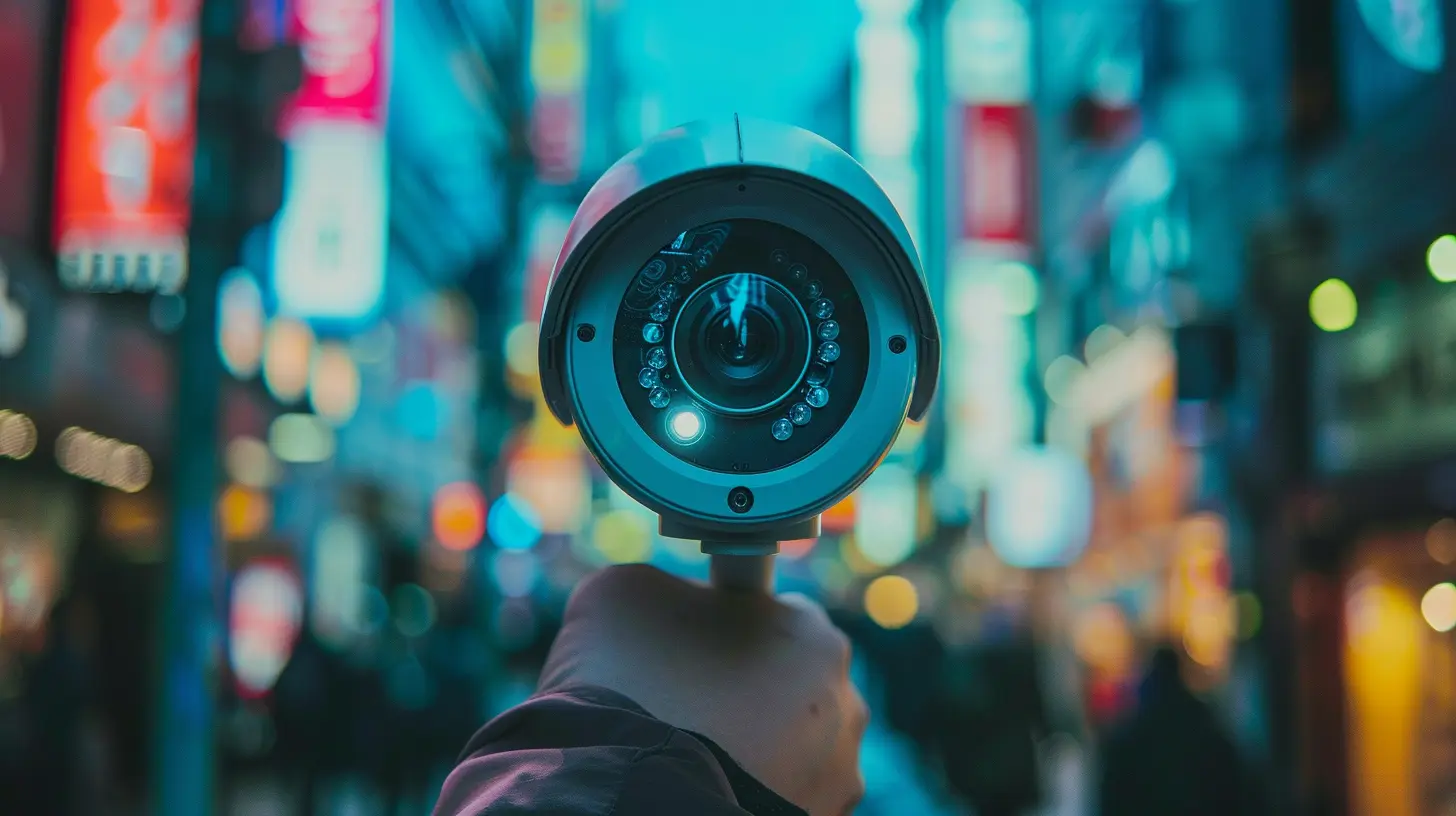Ethical AI in Smart Cities: Privacy and Surveillance Concerns
16 May 2025
Artificial Intelligence (AI) is reshaping our cities, making them smarter, more efficient, and highly connected. From traffic management to energy optimization, AI is the backbone of modern smart cities. But with great power comes great responsibility, right? The rise of AI-driven surveillance and data collection in urban spaces has sparked intense debates about privacy, ethics, and civil liberties.
Are smart cities really making life easier, or are they turning into high-tech surveillance states? Let’s dive into the ethical challenges surrounding AI in smart cities, focusing on privacy concerns and the ever-growing surveillance dilemma.

What Is a Smart City?
A smart city is essentially a connected urban space where AI, the Internet of Things (IoT), and big data work together to enhance infrastructure, public services, and quality of life. Think of traffic lights that adjust in real-time, waste management systems that predict collection schedules, and AI-powered policing. It all sounds futuristic and efficient—but at what cost?The main issue arises when AI steps beyond efficiency and begins to erode privacy, tracking citizen behavior in ways that feel intrusive.

How AI Is Used in Smart Cities
AI is at the heart of smart city innovations, powering a range of applications that enhance urban living. Some key areas where AI plays a crucial role include:1. Traffic and Mobility Management
AI helps manage traffic flow using real-time data, reducing congestion and accidents. Smart traffic lights, predictive analytics, and autonomous public transportation strive to create smooth mobility solutions.2. Public Safety and Law Enforcement
Cities are increasingly using AI-driven surveillance cameras with facial recognition to monitor public spaces and detect criminal activities. While it helps law enforcement, it also raises serious privacy concerns.3. Environmental Monitoring
AI sensors track air quality, pollution levels, and water consumption, helping governments take proactive environmental measures.4. Smart Housing and Energy Efficiency
AI optimizes energy distribution, managing smart grids to reduce wastage and improve sustainability.5. Healthcare Monitoring
Wearable devices and AI-based health monitoring systems can track patient data and alert authorities in emergencies.Sounds beneficial, right? But let’s not ignore the darker side—privacy invasion and surveillance overreach.

Privacy Challenges in AI-Powered Smart Cities
For smart cities to function, they require massive data collection. But where does all this data go? Who has access to it? And more importantly, how secure is it?1. Mass Surveillance vs. Privacy Rights
Surveillance cameras, motion sensors, and facial recognition systems track individuals in public spaces. While these tools promise safety, they also diminish privacy. The idea of being watched 24/7 feels unsettling—do smart cities blur the line between public safety and mass surveillance?2. Data Collection Without Consent
Citizens often don’t realize how much data they’re giving away. Even basic activities like using smart parking systems or accessing free city WiFi involve data tracking. The lack of transparency about what data is collected, how it’s used, and who controls it is a major concern.3. AI Bias and Discrimination
AI isn’t perfect—it learns from algorithms and datasets, which can be biased. Surveillance systems have been found to disproportionately target certain racial and ethnic groups. If AI mistakes someone for a criminal due to flawed algorithms, who is accountable?4. Cybersecurity Risks
With all this data floating around, smart cities become prime targets for cyberattacks. If hackers gain access to surveillance systems, personal data, or critical infrastructure, the damage could be catastrophic.
Ethical Considerations for AI in Smart Cities
Creating ethical AI systems that balance efficiency with privacy is no easy task. Here are some key considerations:1. Transparency and Accountability
City governments and tech companies must be transparent about their AI implementations. Clear policies should be in place about surveillance, data collection, and security measures.2. Data Ownership and Consent
Who owns the data collected in a smart city? Ideally, citizens should have control over their personal information, with the right to opt out of unnecessary data tracking.3. Algorithm Fairness and Bias Prevention
AI developers must ensure their models are free from biases that could lead to discrimination. Regular audits and diverse datasets can help tackle unfair AI-based profiling.4. Strengthening Cybersecurity
Governments must invest in robust cybersecurity measures to protect sensitive data and prevent breaches. Implementing encryption, multi-factor authentication, and continuous monitoring is crucial.5. Human Oversight
AI should not operate unchecked. Human oversight in decision-making processes is necessary to prevent errors and abuses in AI-driven surveillance systems.Striking a Balance: Can AI and Privacy Coexist?
Is there a way to have smart cities without compromising privacy? The answer lies in responsible AI implementation. Encouraging innovation while respecting privacy can be achieved through:- Privacy-Enhancing Technologies (PETs): Tools like differential privacy and federated learning can help maintain data security.
- Decentralized Data Processing: Instead of storing all data in a central location, local AI models can process data without exposing personal details.
- Regulatory Frameworks: Governments must create legal frameworks that limit indiscriminate data collection and define strict ethical guidelines for AI usage.
Conclusion
AI is transforming smart cities for the better, but it’s also raising tough ethical questions. Striking the right balance between technological advancement and privacy is vital for creating future-ready, ethical urban landscapes.The key takeaway? AI in smart cities should empower citizens, not just monitor them. With responsible AI development, clear policies, and citizen participation, we can ensure smart cities enhance lives without compromising privacy.
all images in this post were generated using AI tools
Category:
Ai EthicsAuthor:

Ugo Coleman
Discussion
rate this article
4 comments
Ardent Myers
This article raises crucial points about the balance between innovation and ethical responsibility in smart cities. As technology advances, prioritizing privacy and addressing surveillance concerns must be central to AI development, ensuring that citizen rights are safeguarded while enhancing urban living.
June 1, 2025 at 8:02 PM

Ugo Coleman
Thank you for your insightful comment! Balancing innovation with ethical responsibility is indeed vital for the future of smart cities. Prioritizing privacy and citizen rights is essential as we integrate AI technology.
Sadie Strickland
Ethical AI in smart cities—where privacy meets innovation! 🌆🤖 Let's ensure our smart streetlights don't turn into nosy neighbors. After all, nobody wants a chatbot critiquing their gardening skills! Here’s to tech that respects our privacy while making life easier!
May 25, 2025 at 4:37 AM

Ugo Coleman
Absolutely! Striking the right balance between innovation and privacy is crucial for fostering trust in smart city technologies. Let’s prioritize ethical AI that enhances urban living without infringing on personal privacy.
Sarina Barlow
Oh, fantastic! Who wouldn’t want their every move tracked by an “ethical” AI in a smart city? It’s like having a super nosy neighbor with a PhD in surveillance. What could possibly go wrong?
May 20, 2025 at 1:34 PM

Ugo Coleman
I appreciate your perspective! Balancing innovation with privacy is indeed a complex challenge that requires ongoing dialogue and thoughtful governance.
Juliet McAleer
This article raises essential points about balancing innovation and ethics in smart cities. Prioritizing transparency and citizen engagement in AI deployment can help address privacy and surveillance concerns effectively.
May 16, 2025 at 3:16 AM

Ugo Coleman
Thank you for your insightful comment! I completely agree that transparency and citizen engagement are crucial for addressing privacy and surveillance issues in the deployment of AI in smart cities.



